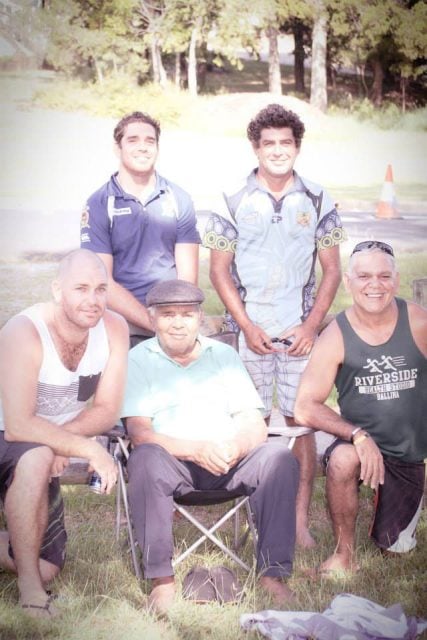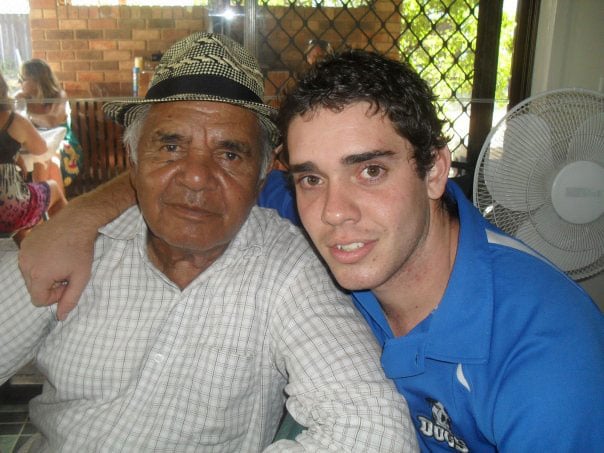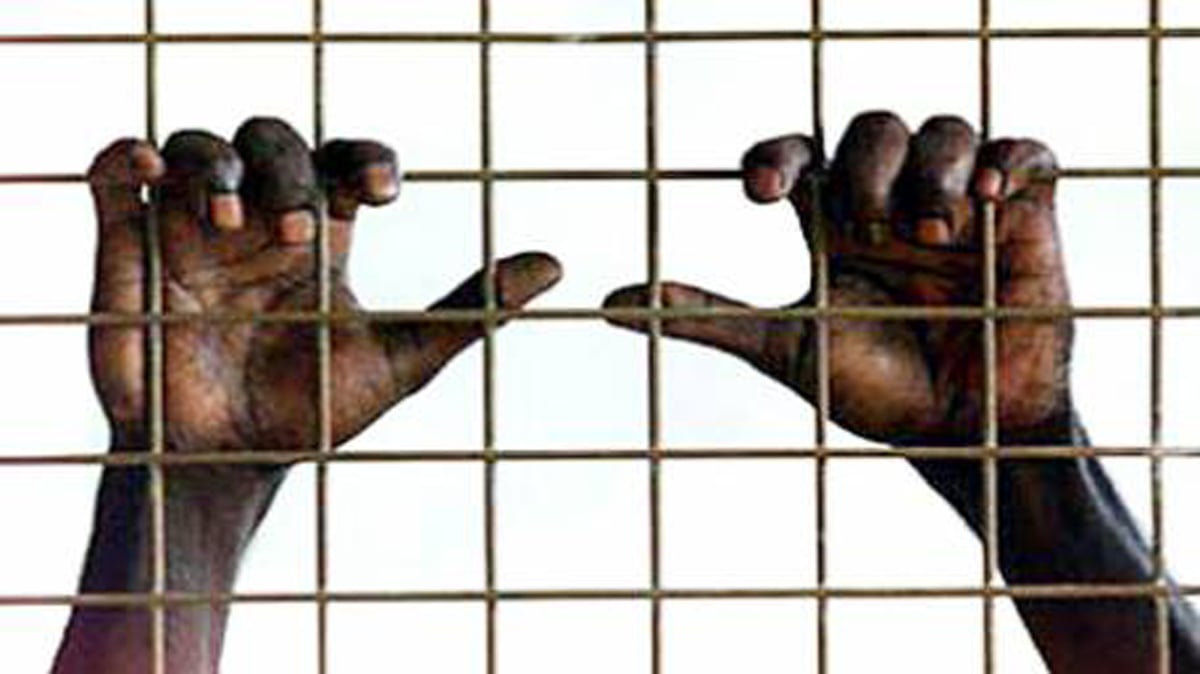

♦ Budgeram means story in Bundjalung language.
WARNING: Aboriginal and Torres Strait Islander viewers are warned that the following story contains images of deceased persons.
My grandfather would often tell me a story. A story about a community. This community was self-sufficient, self-reliant, and self-determining of their own lives. This was a hard-working group of people where everybody contributed to each other’s survival and was invested in mutual success.

Unfortunately, as time wore on, the government stepped in and attempted to determine the future of this community. It took control, monitored movement, and funneled investment. The actions of the government broke the spirit of this community and to this day it has never fully recovered.
For tens of thousands of years, First Nations people have survived and prospered. We lived through the lessons provided by our elders who ingrained a sense of shared responsibility from birth. The understanding that my life is equally as valuable as those around me was the foundation of our very existence.
My grandfather knew this. He lived it by growing up in a close-knit community that worked together and prospered together. He longed to see a return to such times, however, sadly this wasn’t to be. Today, the community he once knew is dysfunctional, homeless, and broken. Self-determination has degenerated to government dependency.

Photo Tree Faerie.
The barriers to survival for First Nations people have changed significantly in the past 234 years. To be successful today we require jobs, access to housing, education, and healthcare, along with business opportunities. Further to this, we the people must better understand and accept the importance of these opportunities to our achievement.
For too long, the barriers facing First Nations people have been used as a political football. Today’s content driven society has exacerbated this problem with individuals from all sides of government seeking to score points over the other. The repeated politicisation of First Nations issues does nothing to create real and long-lasting change within our communities, but rather encourages racial division and aggravates trauma.

As the government of today moves to enshrine an Indigenous Voice to Parliament, some First Nations people are understandably cautious. We’ve received grand gestures in the past, but little real change has come from it. Will the ‘Voice’ be the same? Will our voices really be heard? Giving voice to the voiceless?
What we seek are practical solutions to socially ingrained problems. We do not seek platitudes or symbolic gestures. We seek lives full of boundless opportunities in which we are the architects of our own success. We seek an end to the cycle of low expectations and lack of self-belief. We want to take control over our own lives and determine the outcomes of our future.
My grandfather had a voice. He told me what success looked like. It came from hard work and sacrifice for the betterment of the community. As First Nations people we need to ask ourselves if we are ready to take this step. We need to decide if we are willing to return to the sense of responsibility we hold over the outcomes we seek to change. I know what my grandfather would have said.
Will we be heard?

Author
Eli Cook is from the Nyangbal clan of the Bundjalung nation.
His family are descendants of the South Ballina tribe.
As a local school teacher from the Ballina area he has worked closely with the Aboriginal community for the past eight years.
‘I hold a great interest in Aboriginal and Torres Strait Islander advancement and seek to create stronger communities through truth sharing and shared cultural experiences,’ says Eli.
Bugalbee.
More Storylines articles
Invasion Day – time to create unity through recognition and justice
As 26 January approaches our communities are once more gripped by polarised views of the date.
If not now then when?
In 1901, when Australia’s Constitution was originally determined, there was no direct mention of First Nations people. In fact, it was designed to deliberately exclude us.
The moment we can change the course of history
For decades, Aboriginal and Torres Strait Islander people have been campaigning for change to the current political system in Australia. Many incremental changes have led us to this moment in history...
Storylines – The Voice, it’s time
For generations, First Nations people have consistently and persistently pointed to self-determination as being essential in making meaningful difference in the lives of our people.
Storylines – Upcycle the festive season
♦ Budgeram means story in Bundjalung language. Here comes Christmas, the festive season; the year is drawing to a close and we put the icing on the year with the biggest celebration in our collective calendar. For many it’s a problematic time...
Storylines – Boomalli Aboriginal Artists Co-operative
♦ Budgeram means story in Bundjalung language. Thirty-five years ago, ten Aboriginal artists gathered to create an Aboriginal Artists Co-operative in Sydney, the place of first point of contact with the English in 1788, when Captain Cook proclaimed that the land was...
Storylines – Belonging places
Belonging is a feeling of security and support we experience when we experience a sense of acceptance and inclusion in community. Belonging is a sense of being connected to something greater
Storylines – Working with mob
Many are asking ‘who do I talk to?’ if I want to work with mob? Taking the time to yarn, engage and build relationships is key.
Storylines – The Voice of the voiceless
My grandfather would often tell me a story. A story about a community. This community was self-sufficient, self-reliant, and self-determining of their own lives.
Storylines – Returning to old ways of housing
Kinship and Country obligations for mob resulted in bands, or groups of families living together and sharing everyday life, prior to colonisation.












I wish more Aboriginal people were like you Eli, I really do.
Your right to be suspicious, and Elders in QLD agree with you. They have been through these things before on a State level and have figured out that more government is not the answer. Aboriginal people are 3% of the population and 5.5% of the existing parliament already. Doesn’t help.
“First Nations” is just a stick used to beat White people into submission and keep us inline. It’s used all around the world. Lots of us agree with you that it has nothing to do with you or your people.
It’s the same small group of people using First Nations, Environment, Immigration, LGBTQIP, etc as weapons to demoralise and disenfranchise White People and take power. They have no intention of helping anyone or thing that they use to do it. Historically, they have always turned on the people they used to get into power once they have dominance over a civilisation.